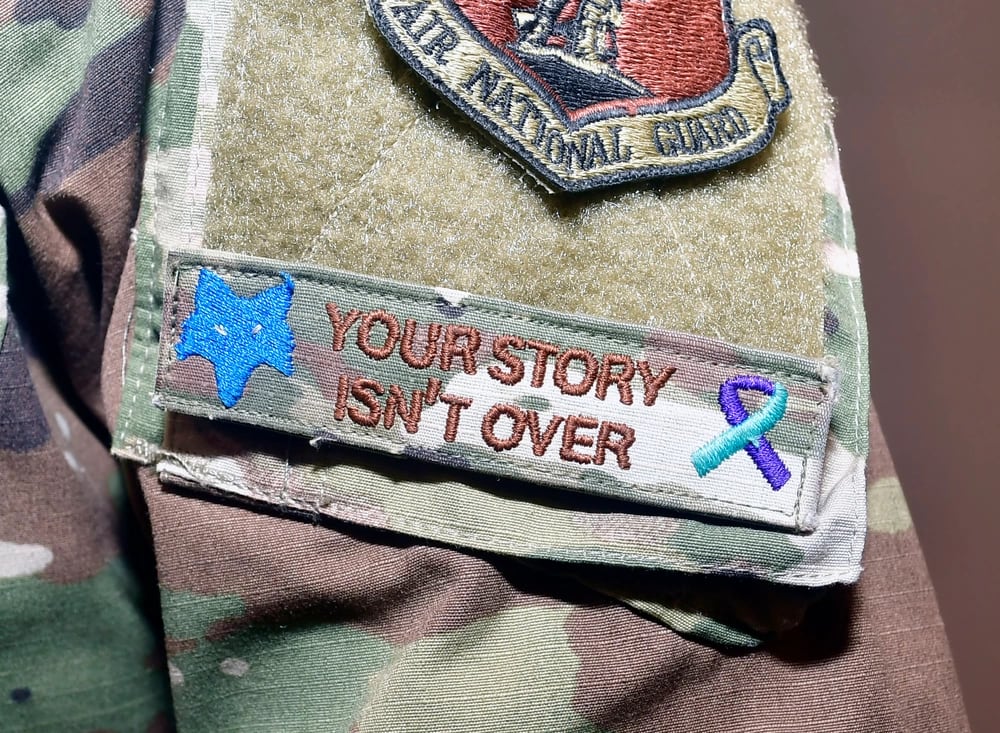Troops, veterans and family members experiencing suicidal thoughts can call or text the 24-hour Suicide and Crisis Lifeline at 988 or visit VeteransCrisisLine.net.
The Space Force has reached a sobering new milestone as it ends its fourth year in operation: the first two suspected deaths by suicide in its ranks.
The guardians’ deaths, which occurred between April and June, mark the first time the Space Force has reported suicides in the Defense Department’s quarterly tallies since the service was founded in December 2019. The periodic updates include confirmed suicides as well as deaths that are still under investigation.
It’s a tragic statistic for the smallest and newest branch of the armed forces, which has sought to craft flexible, empowering quality-of-life policies for the nearly 9,000 troops in its care.
RELATED

“We are committed to fostering a culture that encourages help-seeking behavior and dispels the perceived stigma of seeking mental health treatment,” a spokesperson for the Department of the Air Force, which oversees the Space Force, told Air Force Times Monday.
The other branches of the U.S. armed forces typically log at least a dozen suicides every three months.
Around 25 of every 100,000 active duty troops die by suicide each year, according to Pentagon data. That’s compared to the national rate of 15 suicides per 100,000 Americans, as reported by the U.S. Centers for Disease Control and Prevention.
The Air Force, which saw 91 suicides in 2022, has already logged about half that many in 2023, according to Pentagon data. The service reported 46 presumed suicides across the active duty, Reserve and Guard components in the first half of 2023, eight more than in the same time period one year earlier.
Twenty-four airmen were thought to have died by suicide from January to March this year, plus another 22 from April to June, the Pentagon’s most recent quarterly report showed.
The number has continued to climb in the third quarter of 2023.
A spokesperson for Minot Air Force Base, North Dakota, confirmed Wednesday the service is investigating the deaths of three airmen who died in apparent suicides in October. Airmen have often criticized how the far-north base handles suicides as troops struggle with its isolation and long winters.
Minot is “actively working to provide extensive mental health and resilience resources to struggling individuals,” Capt. Christopher Thibeaux-Moore said. He declined to answer to which squadrons the airmen belonged at the base, which manages a portion of the country’s underground nuclear missiles and B-52 Stratofortress bombers.
“There are a variety of resources in place to provide support systems for our airmen and families in times of need,” 5th Bomb Wing Commander Col. Daniel Hoadley said in an emailed statement. “We worked with higher headquarters to make extra chaplains, counselors and mental health professionals available to support those who are grieving.”
A counselor is embedded with the squadrons affected by the recent deaths, Thibeaux-Moore said, and the base has bolstered a local peer-to-peer support program for those who might be at risk of suicide.
“The loss of any airman affects us as a team,” 91st Missile Wing Commander Col. Kenneth McGhee said in the emailed statement. “We must continue to advocate for various support systems through the Air Force and the local community to ensure that those who need to seek help are able to do so.”
The Department of the Air Force has struggled to curb suicides in its ranks for years, and in 2019 briefly paused daily operations to encourage unit commanders to discuss mental health with their airmen. After falling from 110 that year to 72 in 2021, Air Force suicides are again on the rise.
Service leaders have encouraged troops to seek help for poor mental health — including taking advantage of expedited appointments made possible by the “Brandon Act” reforms — and invested in other suicide-prevention measures ranging from gun locks to local intervention training programs.
As the Space Force looks to carve out its own culture, further differentiating itself from the Air Force from which it came, it has not begun to explore a service-specific set of suicide-prevention initiatives or support services, the spokesperson said.
Defense Secretary Lloyd Austin has pledged to pursue a multifaceted approach to bolstering suicide prevention and response in the military.
“Suicide prevention is a long-term effort,” he wrote in a Sept. 28 memo. “Change will not happen overnight, but we have no time to spare. The health and well-being of these extraordinary public servants and their families is an obligation that I take seriously and personally.”
Rachel Cohen is the editor of Air Force Times. She joined the publication as its senior reporter in March 2021. Her work has appeared in the Washington Post, the Frederick News-Post (Md.), Air and Space Forces Magazine, Inside Defense, Inside Health Policy and elsewhere.
Sarah Sicard is a Senior Editor with Military Times. She previously served as the Digitial Editor of Military Times and the Army Times Editor. Other work can be found at National Defense Magazine, Task & Purpose, and Defense News.





